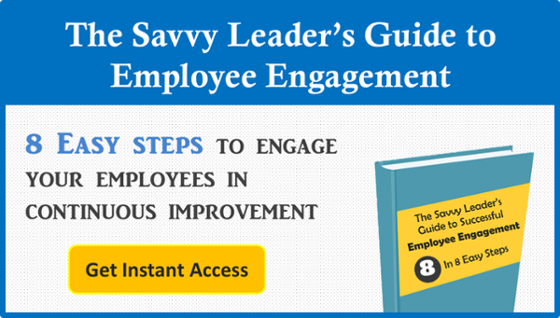
This picture wasn’t taken at a liquor store with a witty staff. It was taken at Safeway, a major grocery store chain with more than 1,300 locations in the United States. Although it made me laugh, it isn’t an attempt at humor. The other side of the aisle is, in fact, a cold case with rotisserie chickens, macaroni & cheese, and other things that non-alcoholics might consider “meals to go.” Safeway isn’t in the business of ending up on Buzzfeed, so how did this happen?
We can’t say for sure, but like the hundreds of other mistakes, missed opportunities and lapses in judgment that happen in companies every single day, it is likely the result of one or more of these common beliefs that can kill a culture of continuous improvement.
1 – That’s not my job
Certainly employees need to have clearly defined roles and a sphere of primary responsibility, but ridged adherence to one’s job description can sometimes be a passive-aggressive act. If this belief is present, leaders should consider whether they’ve contributed to it by penalizing those who’ve stepped beyond their role. Ridged adherence to a hierarchical structure can contribute to this belief as well.
2 – I’m just following orders
Sometimes the root of this attitude is disengagement, other times it may be a method of conflict avoidance. Employees who are too timid or frightened to question authority offer less value to the organization than those who do.
3 – No one cares what I think anyway
Talk about a lose-lose situation. When employees believe that their ideas and opinions are not valued, the company loses the potential of those ideas and the employee loses the opportunity to contribute meaningfully to the success of the organization.
What Can Leaders Do to Eliminate these Attitudes?
Of course, individual situations vary, but there are some universal things that can be done to help keep these weeds out of your culture’s garden.
- Hire carefully – Craft interview questions designed to look for these beliefs about work. Ask about situations when the applicant stepped out of their role, questioned authority, or contributed a fantastic idea.
- If you see something, say something – When employees are observed making these statements or acting as if they are true, managers must be willing to have a conversation about what is going on. Perhaps only a little encouragement is needed to let the employee know how important their full engagement is to the organization.
- Be willing to say goodbye – The biggest problem with these beliefs is that they are contagious. People who are unwilling to fix problems or bring them up with the people who can are all too often happy to complain about them to their peers (AKA gossip). Letting someone go is no fun, but sometimes it is absolutely necessary to protect the culture.
- Reward and promote your culture superstars – If you have an employee who instead believes that they can and should contribute in any way possible, that they are responsible to ask questions and press authority figures, and that their voice is valued, be sure to recognize and reward them. Culture is all about examples.
I guess it’s possible that no one at Safeway had the thought that booze doesn’t make a great meal (especially one for the road), but I doubt it. Perhaps they shrugged it off. Perhaps they laughed it off, but what they didn’t do was fix it. If I were running the company, I’d want to understand why.



Add a Comment